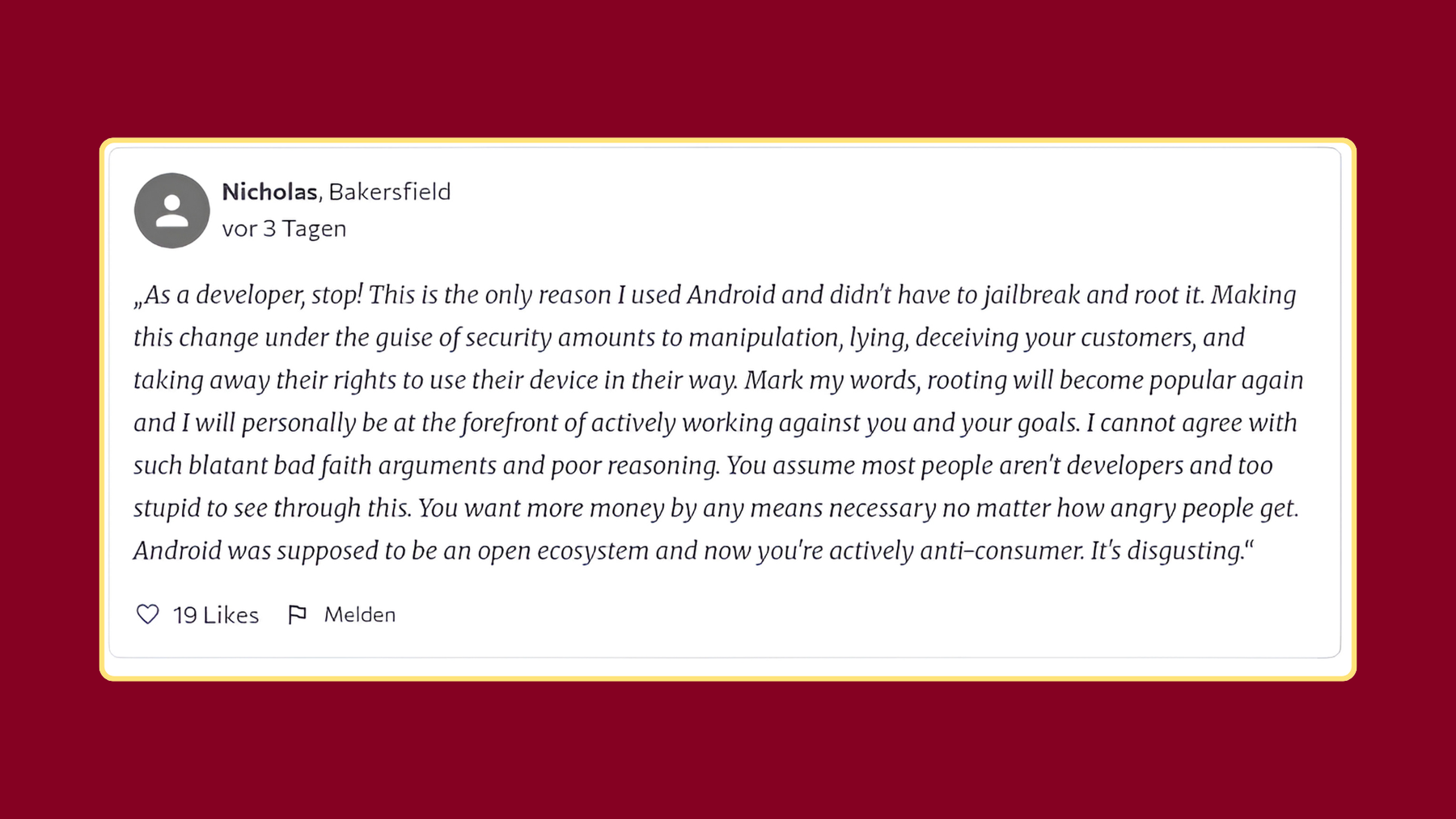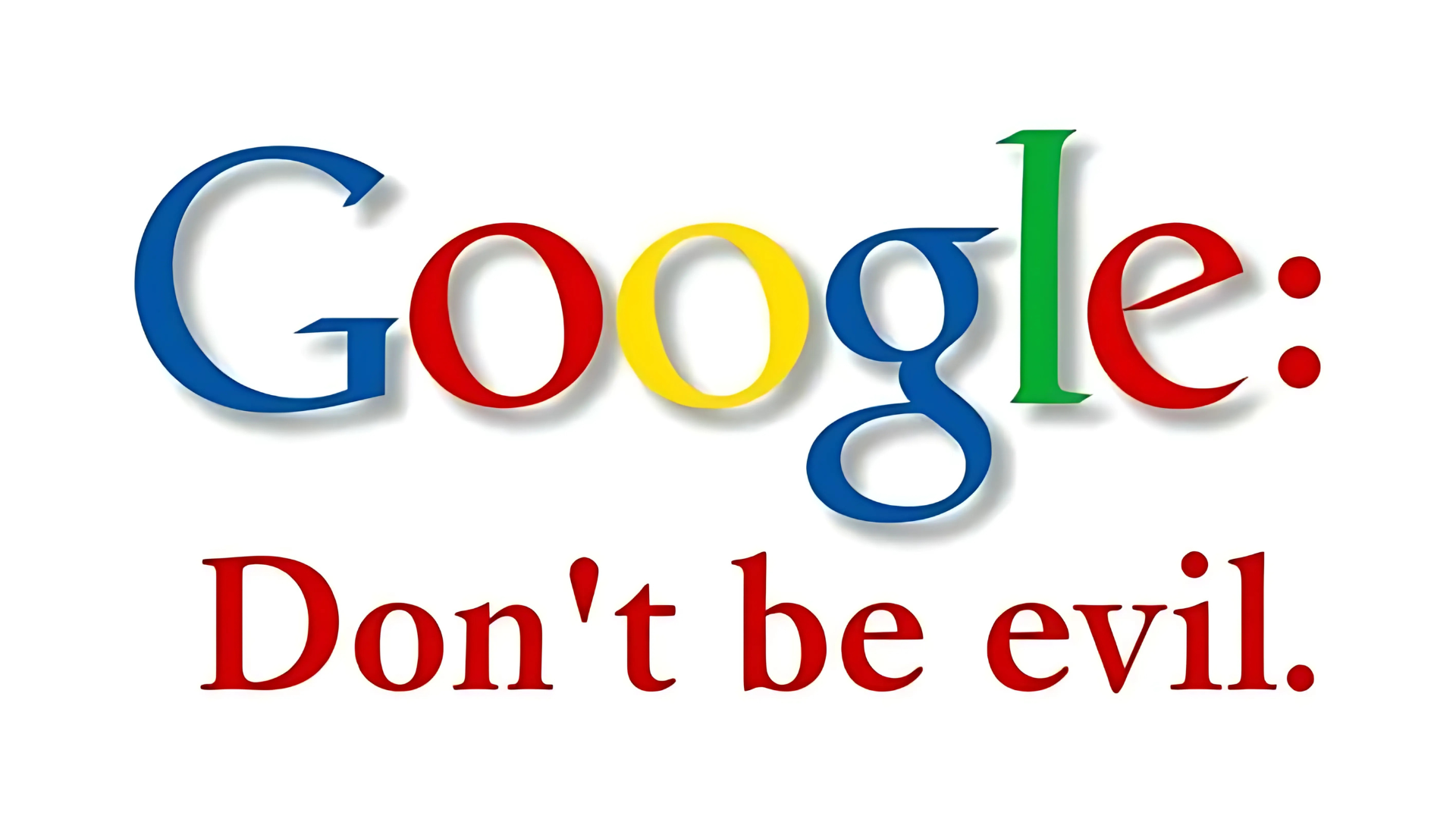Google plans to block side-loading like Apple, declaring war on Android freedom
Starting 2027, unverified apps can’t be side-loaded on Android. It’s fair to say that Google is becoming Apple: Your device, their rules.
For years, Android fans have celebrated Android freedom. Android – different to Apple’s OS on iPhones – was born as an open source project, and it was never Google’s in the first place. But today Google’s Android OS runs on most Android phones so the Silicon Valley tech giant has the power to take that freedom away. And users are not happy. Genalio commented:
“Jesus christ google you want to drive away your entire customer base? You realize that the only reason we don’t buy iphones is because they don’t give us this freedom that Android does. I know you think no one can touch your multi billion dollar empire but know that you have that data because of us. The customers. NO ONE ASKED FOR THIS, NO ONE WANTS THIS. First you “detected root” then you “implemented safety net” then you implemented “play integrity and certification” just pushing and pushing and pushing developers to bow down to you. And now this? No. You aren’t staying on top forever. Think very carefully if this is the road you want to tread because we will all leave. And it won’t be just Android. Alternative search engines exist. Alternative emails exist. Alternative cloud storage exists. We don’t have to bow down to Google. If you do this, it’s over.”


Before doing a deep dive into how Google plans to stop side-loading apps, take a look at this petition and help stop Google’s plans!
The Apple-ification of Android
If what Google is planning now sounds familiar to you, that’s because Apple has been doing the exact same thing, basically forever. Apple refuses side-loading of apps outside its tightly controlled App Store. When the EU’s Digital Markets Act (DMA) required Apple to change its handling of third-party apps, all that Apple did was malicious compliance to make sure it continued to hold the power over its flagship device; the iPhone. Apple has the power over what you can and cannot install on iPhones, and now Google wants it, too, on Android devices.
Google is heading in the same direction, completely ignoring that one of Android’s unique selling points is its openness, which to this date is in stark contrast to what Apple is doing. But just like Apple, Google is now pretending that it needs to stop side-loading of apps for your “safety”. Google frames the change as a security measure, comparing it to “checking IDs at the airport”. But this isn’t about security; it’s about control. By forcing every developer to go through Google, the Silicon Valley tech giant cements itself as the gatekeeper of the Android ecosystem.
What will change
If your phone uses Google Play Services (that’s almost every Android device outside China), the effect could be massive:
-
F-Droid apps may be harder or impossible to install.
-
Custom APKs could be blocked entirely.
-
Google gains near-total control over what runs on your device.
If you think about it, you will understand why this is so bad: The phone you bought and paid for is no longer really yours. Google decides which apps are allowed to be loaded on Android and which are not.
Security or power – why this change?
Google likes to point out that apps installed outside the Play Store are “50 times more likely” to contain malware. That statistic makes for scary headlines, but it ignores a crucial fact, one that everyone promoting and defending open source – for good reason – will understand:
“You should be free to take that risk.”
Of course, downloading malware-ridden APKs from shady websites does carry a lot of risk, and we would never recommend anyone doing this. But installing open-source apps from F-Droid or Aurora store? Installing APKs directly from the developer’s website, for instance Tuta Mail and Tuta Calendar? By pushing everything into one category, by saying that only apps from Google Play are secure, Google paints itself as the benevolent protector, acting only for the greater good – while in fact Google is quietly seizing more and more control over the entire Android ecosystem.
And if you still do not understand why Google would go through all of this, here’s a tip: Follow the money. Google makes money when apps are downloaded from its store. So the more apps are distributed via Google Play, the more people buy upgrades via Google Play, the more ad-money is spent by developers on Google Play, the more Google profits.
It looks like Google has completely forgotten about its earlier company motto: Don’t be evil.
The way out or “Choosing Freedom”
If you care about your digital freedom, now’s the time to act. Don’t wait until 2027 when Google’s lock-down on Android devices becomes global. Fortunately, due to Android’s openness to this day, there are lots of alternative operating systems (OS) that you can use on Android phones that have zero reliance on Google and can run without Google Play. Choose one of these custom ROMs like LineageOS, CalyxOS, e/OS, or GrapheneOS, and make sure Google can not hold you ransom. With these open source operating systems, you make sure that you own your device – no one else, not even Google, does. Because that’s what open source is about: These operating systems put you in charge over what runs on your device, not Google.
These operating systems do not work on all Android phones so check whether they do on yours. If you’re ready to buy a new phone, check which OS it supports. Good phones that do not require Google’s OS from Europe are Fairphone from the Netherlands and Volla from Germany.
Your device is yours
When Android launched nearly two decades ago, it was celebrated as the “open” alternative to Apple’s locked-down iPhone. But slowly and surely, Google has chipped away at that openness because the Android version most widely used is the one primarily developed by Google.
Blocking side-loading of unverified apps is a big blow to Android’s openness, and one that no one saw coming. It’s a way for Google to dictate what you can and cannot do with the device in your own pocket. It’s astonishing to see that Google is doing what Apple is so badly criticized for. So we’re here to unite all Android users: Don’t let Google get away with it. Sign the petition to maintain Android’s openness. And start looking into open alternatives to be ready if it gets worse. Unfortunately, Google’s former motto of not being evil has been wiped from the Big Tech’s memory so it’s up to us to make a change!
Remember: It’s your phone, your data, your freedom. Don’t let Google take it away.


